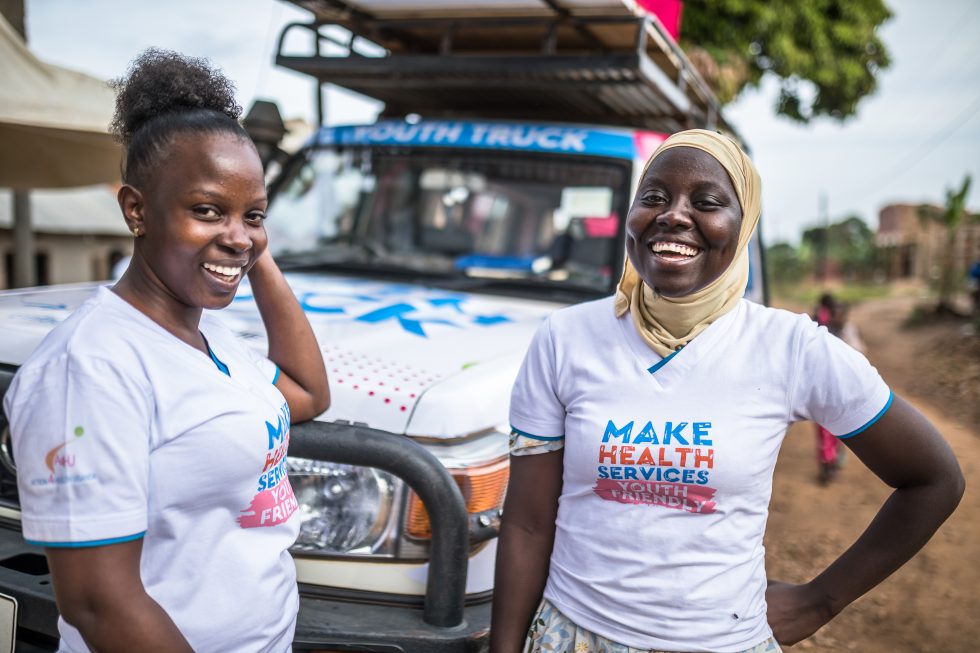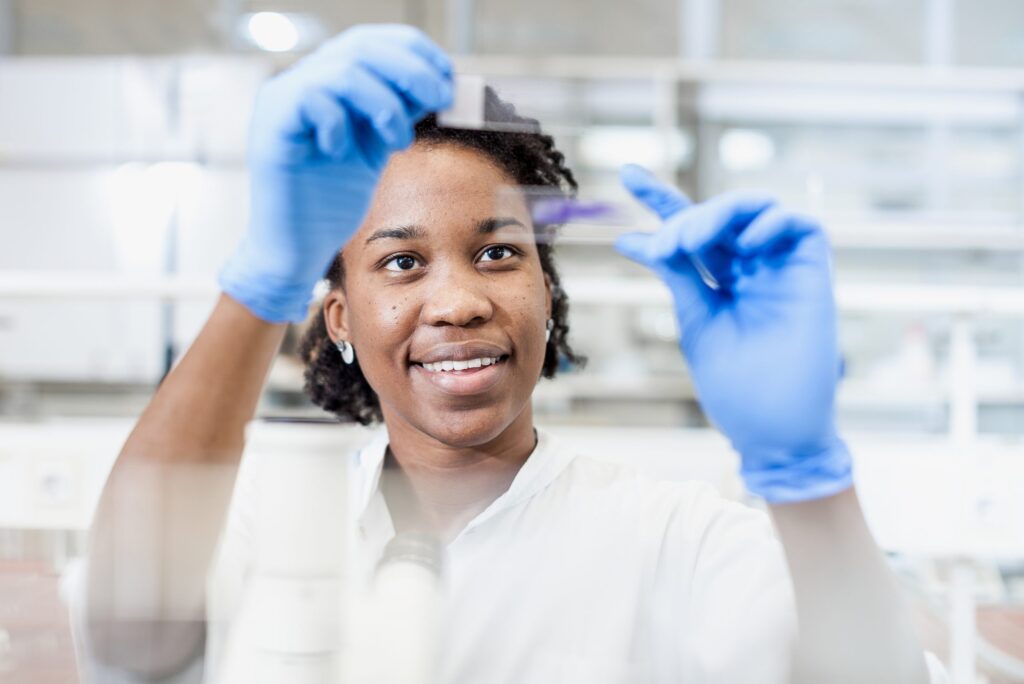

The EU Global Health Strategy – an opportunity for the EU to step up its leadership in global health
On November 30, the European Commission adopted its renewed Global Health Strategy. Long-awaited, the strategy replaces a previous framework that dated back to 2010, which lacked adequate political support, and which was no longer fit for purpose, given the considerable changes in the global health landscape over the last decade.
DSW, together with other global health civil society organisations, advocated over the past years for the adoption of a new strategy aligned with the SDGs which adequately considers key persisting, neglected, or emerging global health challenges, such as antimicrobial resistance (AMR), sexual and reproductive health and rights (SRHR), pandemic preparedness, and the fight against infectious and neglected tropical diseases.
The new strategy, presented by European Commissioners Urpilainen (International Partnerships) and Kyriakides (Health) finally puts health back on the EU’s political agenda as a key priority. Running until 2030, the Global Health Strategy provides the EU with a robust policy framework that has the potential to accelerate progress in the achievement of health-related SDGs and deepen the EU’s leadership on global health.
Rooted in key principles and fundamental values, such as solidarity, equity, and the respect of human rights, the strategy focuses on three core priorities, accompanied by concrete lines of actions to operationalise them:
- Deliver better health and wellbeing of people
- Strengthen health systems and advance universal health coverage
- Prevent and combat health threats, with a One Health approach
What’s in the strategy for SRHR?
We are particularly happy to see SRHR recognised as a fundamental component of the strategy, especially at a time when these rights are contested at a global level. In particular, the support for universal access to SRHR is included as a key action to contribute to delivering better health and improving equitable access to health services.
The strategy puts a focus on promoting SRHR for women and girls, youth, and people with disabilities. In this context, it is great to see the need for youth-friendly services specifically mentioned in the new framework. Too often, SRHR services are not appropriate or safe to access for young people. This is why it’s crucial for all youth to have access to SRHR services that are equitable and affordable and respond to their specific needs and challenges.
Also, we are happy to see the EU reconfirming once more its support to the UNFPA Supplies Partnership, recognised as an important contributor to the promotion of SRHR through its work addressing the unmet need for family planning.
What’s in the strategy for research & innovation, especially for poverty-related and neglected diseases?
Firstly, the strategy acknowledges the critical role that improving equitable access to a full range of essential health services, including disease prevention and affordable quality treatment through resilient public health programmes, plays in disease control, especially for infectious and neglected tropical diseases. The strategy prioritises addressing the economic, social, and environmental root causes of ill health, paying particular attention to the needs and the rights of women, children and young people, as well as other vulnerable groups. We hope to see this approach reach the research and innovation (R&I) actions that the strategy supports, as inequalities in health interventions can take root at the bench side, as highlighted in our PRNDs Through a Gender Lens Study.
Acknowledging that neglected tropical diseases are almost absent from the global health agenda, the strategy commits to prioritising the development and use of novel vaccines, treatments, and diagnostics to tackle infectious and neglected diseases, including through the Global Health European Developing Countries Clinical Trials Partnership (EDCTP3). While this strong commitment to the EDCTP3 is welcome, dedicated funding for early-stage research on PRNDs via Horizon Europe is also needed to fill product gaps that exist for neglected and poverty-related diseases.
Recognising that research is a key enabler of better health, boosting global health research – as a common good – to develop the technologies and countermeasures which are necessary to improve health is one of the guiding principles of the strategy. Related actions include fostering closer collaboration with low- and middle-income countries (LMICs), building capacity and strengthening end-to-end research for local pharmaceutical and health technology production in LMICs. Efforts to reinforce pandemic preparedness and response will also support regional and country efforts to strengthen pharmaceutical systems and manufacturing capacity to increase quality, safety, and equitable access to vaccines and other medical products and technologies. We’re pleased to see the EU pledging to boost the ongoing Team Europe initiative on Manufacturing and Access to Vaccines, Medicines and Health Technologies in Africa, as well as reconfirming its commitment to the Coalition for Epidemics Preparedness Innovations (CEPI) to support the research and development of vaccines against emerging infectious diseases.
Climate change, the interconnectedness of our societies, and the close interplay of human, animal, and planetary health threaten new pandemics, as well as the resurgence of existing pandemics and epidemics. We welcome the strategy’s emphasis on the need for a One Health approach to tackle global health challenges, including neglected diseases and the “silent pandemic” of AMR. While the strategy outlines actions to support the development of accessible, innovative medical countermeasures to address AMR, including antimicrobials, vaccines, and diagnostics, we urge that diseases such as HIV and TB – a leading contributor to AMR – be included in the scope, as their limited pool of effective tools is at risk of being further constrained by growing resistance.
From policy to actions: funding and implementation will be key
As the strategy underlines, there is a massive unfinished agenda in global health, including tackling the heavy burden that major infectious diseases present for many countries. While the COVID-19 pandemic has highlighted the key role of R&I in tackling global health challenges, we have seen support wane in the fight against poverty-related and neglected diseases. Similarly, we face the risk of a rollback on SRHR across the world. Now is the time to step up, not down. To make the Global Health strategy a truly transformative tool, funding and implementation will be key to translating its ambitious commitments into concrete actions.
While collectively being among the largest funders of global health, the EU and its member states are lagging behind other major donors when it comes to prioritising investments in health as part of their Official Development Assistance (ODA). While the UK and the US dedicate around 15 and 30% of their ODA to health respectively, the EU’s health ODA remains at 4-5%. It is therefore encouraging to read that the EU will prioritise global health across all relevant EU budget financing programmes.
The ambition of the EU’s new strategy must be accompanied by a scale-up of its global health funding, through both bilateral funding and support to global health multilateral initiatives, as well as an increase of global health-related R&I investments under Horizon Europe. Moreover, we call on the EU to fully take into account and incorporate the provisions of the strategy as part of both the mid-term review of the current MFF and the shaping of the future MFF after 2027.
Finally, accountability will be key to making sure the EU walks the talk. A robust monitoring and evaluation framework will be needed, including measurable, relevant indicators that allow for regular reporting on progress. We stress the importance of meaningfully involving civil society and communities, including research communities, as the European Commission will work to develop such a framework in 2023. Holding regular high-level exchanges with the European Parliament and civil society, as well as the publication of progress reports every two years, are welcome steps in this direction.
Now, we call on the Council of the EU, under the leadership of the current Czech and upcoming Swedish Presidencies, to fully endorse the strategy and commit to its implementation. Only with strong ownership and political and financial support from EU Member States can the strategy truly be a transformative tool.
Launching the strategy, Commissioner Urpilainen called on us all to turn the strategy into a reality, and DSW commits to doing so, promoting health for all.



Comments